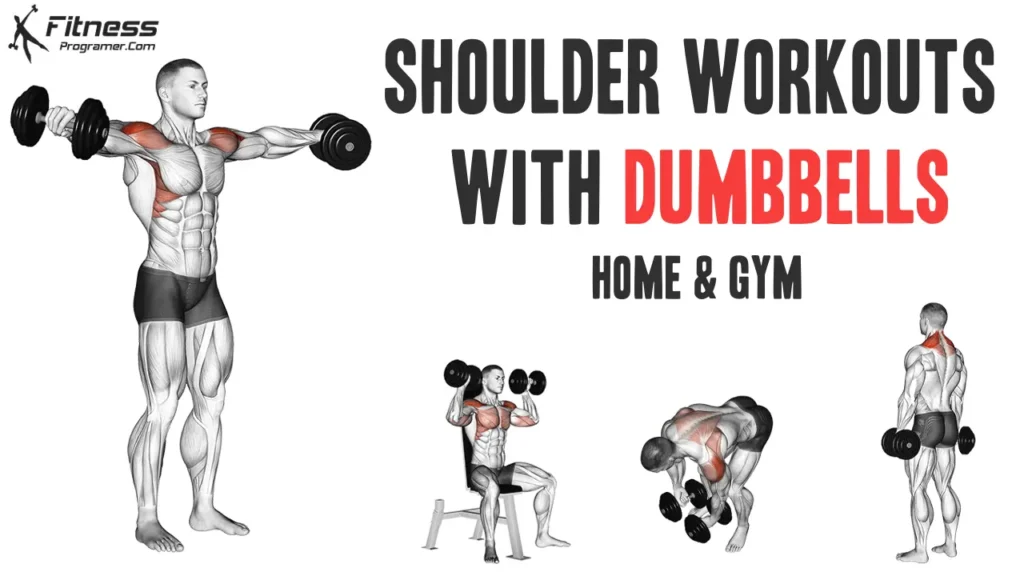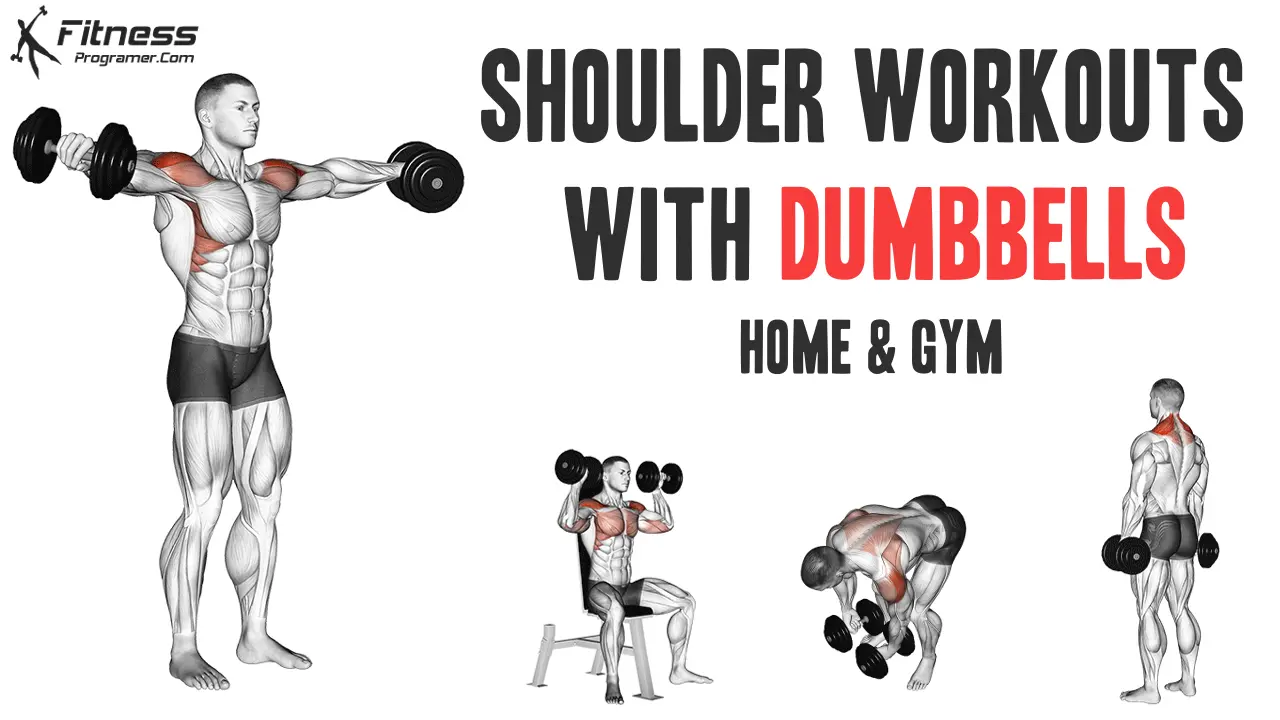
When it comes to sculpting strong, stable, and defined shoulders, dumbbells are a versatile and effective tool. They allow a full range of motion and help place greater strain on muscles and improve joint stability. In this guide, we’ll walk you through a dumbbell shoulder workout that targets all three heads of the deltoid: the anterior (front), medial (side), and rear (rear). Whether you’re a beginner or an experienced lifter, these exercises can be customized to suit your fitness level.
Benefits of dumbbell shoulder training
- Improved mobility: Dumbbells allow natural freedom of movement and reduce stress on the joints.
- Balanced development: Target all three heads of the deltoid to create a rounded appearance.
- Increased stability: Strengthen the stabilizing muscles and thus reduce the risk of injury.
- Muscle symmetry: With dumbbells, each arm has to work independently, reducing muscle imbalances.
- Adjustable intensity: Adjust the weight to suit your fitness level and goals.
- Accessibility: A pair of dumbbells can be used at home or in the gym.
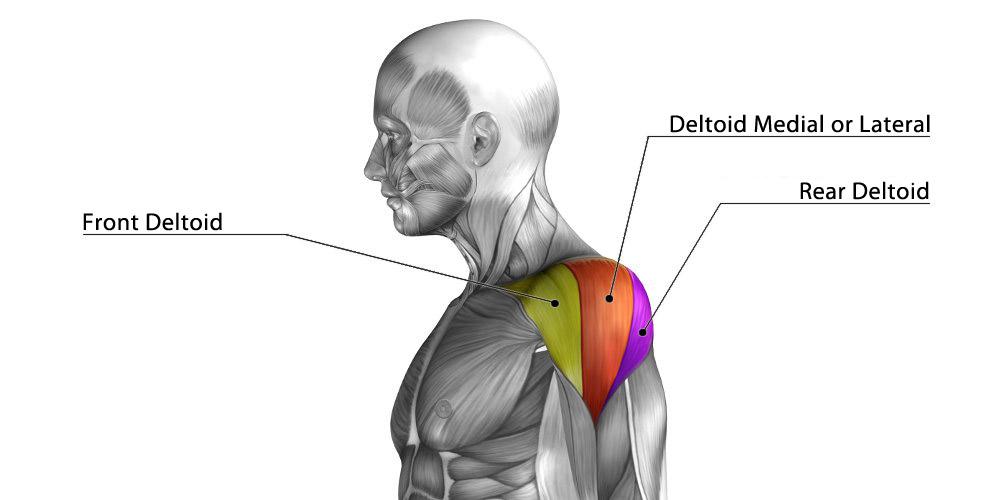
The dumbbell shoulder training
Warm up (5-10 minutes)
Dynamically prepare your shoulders before starting your workout warm up:
- Arm circles (30 seconds forward, 30 seconds backward)
- Wall slides (20 reps)
- Shrug (15-20 reps)
- Light dumbbell shoulder press (2 sets of 10 reps with light weight)
- Band pull aparts (15 reps)
1. Dumbbell shoulder press
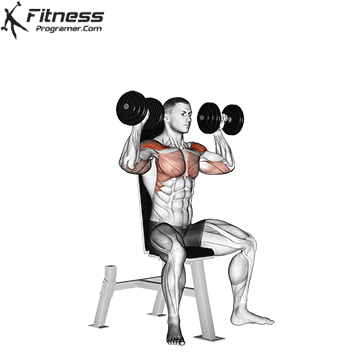
Goal: Anterior and medial deltoid heads
- Sit or stand with dumbbells at shoulder height and palms facing forward.
- Press the weights overhead until arms are fully extended.
- Slowly lower the weights back to the starting position.
- Sets/repetitions: 3 x 10-12
2. Lateral raises
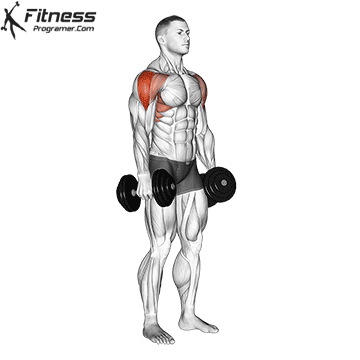
Goal: Medial deltoid
- Hold the dumbbells at your sides with your palms facing inward.
- Raise your arms to the sides until they are parallel to the floor.
- Slowly lower yourself back down.
- Sets/repetitions: 3 x 12-15
3. Front raise
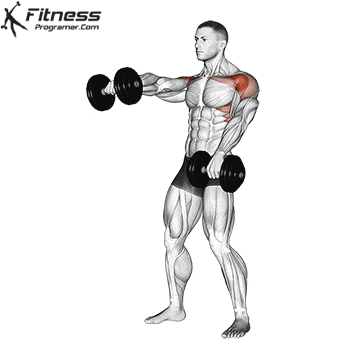
Goal: Anterior deltoid
- Hold dumbbells in front of your thighs, palms facing inward.
- Raise one arm at a time to shoulder height and then lower it.
- Alternate arms or lift both at the same time.
- Sets/repetitions: 3 x 10-12
4. Folded backwards flight
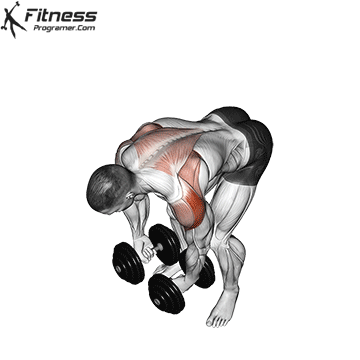
Goal: Posterior deltoid
- Bend your hips, keep your back straight, and let the dumbbells hang underneath you.
- Raise the weights to the sides while squeezing your shoulder blades.
- Slowly lower the weights again.
- Sets/repetitions: 3 x 12-15
5. Dumbbell shrugs
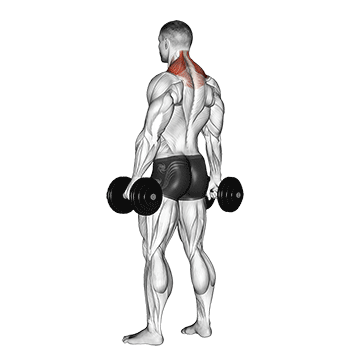
Goal: Trapezius (upper back support for shoulders)
- Stand tall with dumbbells at your sides.
- Pull your shoulders as high as possible towards your ears.
- Slowly lower your back.
- Sets/repetitions: 3 x 12-15
Cooldown (5-10 minutes)
- Child’s pose: Stretch your shoulders and back.
- Kneeling T-spine rotation: Focus on the posterior deltoid.
- Cross-body shoulder stretch: Hold each arm for 20 to 30 seconds.
- Reverse shoulder stretch: Focus on the anterior deltoid
Tips for success
- Form first: Maintain proper form to avoid injury. Avoid arching your back or using momentum.
- Progressive overload: Gradually increase the weight or reps to continue building strength.
- Relax: Allow 48 hours to recover between shoulder exercises.
- Consistency is key: Aim for two shoulder training sessions per week.
- Listen to your body: Adjust exercises or take a break if you experience discomfort.
Diploma
Incorporating this dumbbell shoulder workout into your fitness routine will help you achieve strong, stable, and well-defined shoulders. Remember to focus on form, warm up properly and progress at your own pace. With consistency you will notice noticeable improvements in strength and aesthetics. Are you ready to take your shoulder training to the next level? Grab your dumbbells and get started today!


